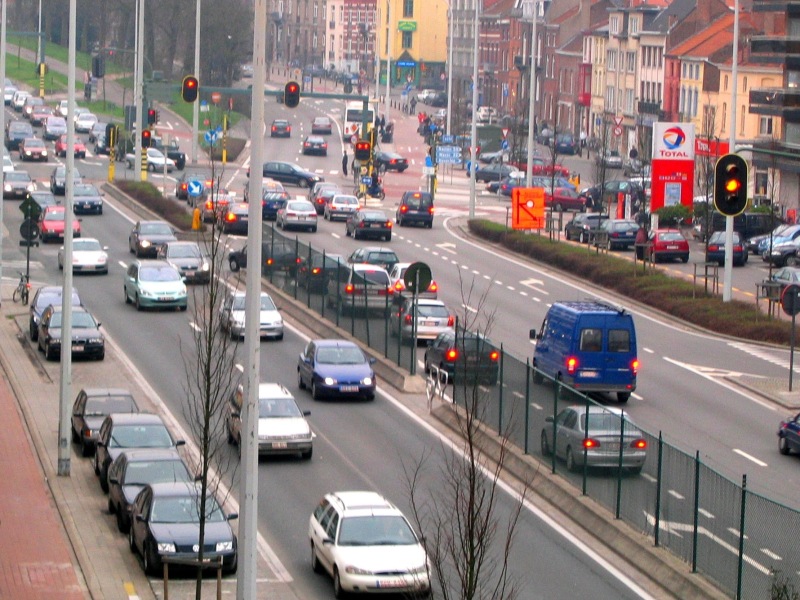Ecosystem analysis of local traffic count data
23074
2024
TML supported the Flemish government in improving local traffic count data for the FLOMOVIA model, with the aim of providing more accurate insights into traffic intensities on local roads. This included drafting cooperation and funding models and creating a solutions catalogue.
There is demand from various sides for a better supply of local (multimodal) traffic count data. The requesting parties are diverse: on the one hand, there is interest from various entities of the Flemish government, both within and outside the mobility domain; on the other hand, the subject is high on the agenda of Smart Flanders, indicating that there is also a need from the central cities.
The reason for this assignment is the need among various entities of the Flemish government for more local traffic data for the FLOMOVIA model. FLOMOVIA is a traffic propagation model fed by traffic counts through double loops on the highways and temporary counts on the underlying road network. In addition, floating car data are used to obtain insights into realistic speeds and journey times. FLOMOVIA propagates these counts, so that even links without a counting station can still be connected to a (combination of) counting station(s). The more counts, the more accurate the model results. The goal of this assignment was to generate more local traffic data that adds value for all stakeholders involved, specifically by finding a solution for the missing counts (mostly on local roads). The ultimate goal of FLOMOVIA was to know traffic intensities (and speeds) down to the level of local roads.
First, we mapped the ecosystem and value exchanges and needed to build our knowledge thoroughly. We started with a knowledge bath, then moved on to desktop research. This prepared us for the focus interviews. With the information gathered from the previous steps, we established a working group that brought together different members of the ecosystem. We built on the information we obtained about the actors and brought into focus the solutions that already exist, which we evaluated with the aim of making statements about their further development. This led to a specific tool, the solutions catalogue, which local governments are able to use directly. We then worked out possible cooperation and financing models. On the basis of these models, we sharpened the various roles and responsibilities - including central coordination. This coordinator guaranteed the survival of a functioning solutions catalogue through a sustainable ecosystem.
TML supported the mapping of the ecosystem and later the elaboration of cooperation and financing models. We were also responsible for the concrete devopment of the solutions catalogue.
There is demand from various sides for a better supply of local (multimodal) traffic count data. The requesting parties are diverse: on the one hand, there is interest from various entities of the Flemish government, both within and outside the mobility domain; on the other hand, the subject is high on the agenda of Smart Flanders, indicating that there is also a need from the central cities.
The reason for this assignment is the need among various entities of the Flemish government for more local traffic data for the FLOMOVIA model. FLOMOVIA is a traffic propagation model fed by traffic counts through double loops on the highways and temporary counts on the underlying road network. In addition, floating car data are used to obtain insights into realistic speeds and journey times. FLOMOVIA propagates these counts, so that even links without a counting station can still be connected to a (combination of) counting station(s). The more counts, the more accurate the model results. The goal of this assignment was to generate more local traffic data that adds value for all stakeholders involved, specifically by finding a solution for the missing counts (mostly on local roads). The ultimate goal of FLOMOVIA was to know traffic intensities (and speeds) down to the level of local roads.
First, we mapped the ecosystem and value exchanges and needed to build our knowledge thoroughly. We started with a knowledge bath, then moved on to desktop research. This prepared us for the focus interviews. With the information gathered from the previous steps, we established a working group that brought together different members of the ecosystem. We built on the information we obtained about the actors and brought into focus the solutions that already exist, which we evaluated with the aim of making statements about their further development. This led to a specific tool, the solutions catalogue, which local governments are able to use directly. We then worked out possible cooperation and financing models. On the basis of these models, we sharpened the various roles and responsibilities - including central coordination. This coordinator guaranteed the survival of a functioning solutions catalogue through a sustainable ecosystem.
TML supported the mapping of the ecosystem and later the elaboration of cooperation and financing models. We were also responsible for the concrete devopment of the solutions catalogue.


